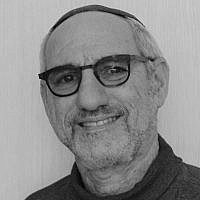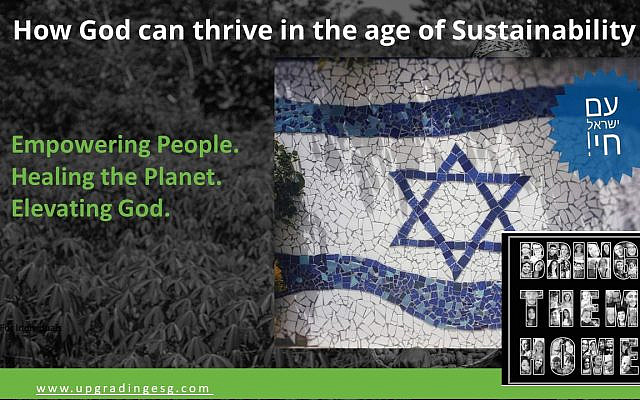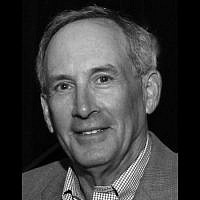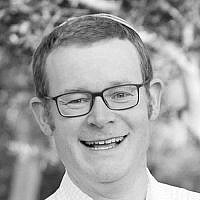To be free, you have to let go of hate
This Pesach, our Seder takes on a unique significance, resonating deeply with Jewish communities worldwide. Recent events have shaken our foundations, challenging our faith and calling us to awaken from complacency. As we confront uncertainties, we are reminded of the imperatives of our Jewish identity and the imperative to stand firm in the face of adversity.
This Pesach, this Seder, will be like no other in our lives. October 7th has brought our Jewishness out of ourselves. We can no longer hide our Jewishness, whether living in Israel or abroad. The trauma of events has shaken our foundation of the world, our faith, and of God. It’s woken us out of our slumber. If we were able to be neutral before, we can no longer be neutral.
Letting Go
Central to this year’s Seder is letting go and forgiving. We grapple with the question of how to forgive amidst profound pain and loss. Drawing parallels to personal relationships, we acknowledge the necessity of forgiveness to move forward, even amidst the scars of past wounds. The trials we face serve as catalysts for growth, albeit accompanied by profound pain.
So, as I reflect on what to write this year, I want to acknowledge a theme of letting go of past mistakes and forgiveness. The question is, how can we forgive those responsible for the events of October 7th? Keeping this question loaded on purpose.
One of the things we need to learn from the survivors of the Holocaust is that I don’t really know if it’s true or not, but they seem to forgive and at least move on with their lives. I don’t know how they did it.
In the aftermath of October 7th, I don’t know how those who lost sons, brothers, and fathers, whose lives were maimed forever, and those who are not in their homes but have lost their homes can forgive. Ultimately, we’re going to have to learn to forgive, or at least try to move on.
You can compare this on a personal level. It’s hard to live with the mistakes we make with our children, parents, and spouses. Sometimes we have to forgive. We want to move on from those mistakes.
The attacks of October 7th were made, and we can’t change that. There is much pain. We are see growing pains in the Jewish people in Israel today as a result of October 7th. but there are some positives you take from this whole process.
To be free, you have to let go of hate.
“Do not hate an Egyptian, because you were strangers in his land,” said Moses, meaning: To be free, you have to let go of hate. Deuteronomy 23:8. Exodus 1:22.
Even though the Jews were enslaved by Egypt and the forces that pursued them in the Red Sea were bent on revenge, the Israelites were prohibited by a specific Torah commandment from not hating the Egyptians.
“There is a custom to spill a drop of wine as we say the name of each plague. There are many reasons given for this, but the most beautiful is that of Abudraham (a fourteenth-century rabbi from Spain who is best known for his commentary on the Siddur), who interprets it in accordance with the verse “Do not rejoice when your enemy falls” (Mishlei 24:17 ). We give thanks for the miraculous plagues which brought our ancestors out of Egypt and granted them freedom, but at the same time, we also shed a symbolic tear for those who suffered.” Credit – Rabbi Sacks.
The Symbolism of Four:
The recurring motif of four in the Seder holds deep significance, guiding our reflections on forgiveness and renewal.
This year I will choose four different types of wines meditating on each.
Four Cups of Wine:
- The first cup, a red wine, symbolizes the sacrifice of our soldiers and the blood shed for our freedom.
- The second cup, a white wine, represents the triumph of goodness over evil, echoing Albert Einstein’s words on the absence of evil in the presence of divine love.
- The third cup, a champagne, invites us to celebrate the goodness in our lives amidst adversity.
- The fourth cup, a sweet dessert wine, acknowledges the sweetness and blessings in our lives, akin to the sweetness of Rosh Hashanah and the birth of the Jewish people in the month of Nissan and in the exodus story.
I am sharing this from Albert Einstein.
“Evil does not exist, or at least it does not exist for itself. Evil is simply the absence of God. It is like darkness and cold—a man-made word to describe the absence of God. God did not create evil. Evil is not faith or love, which exists as light and warmth. Evil is the result of the absence of Divine love in the human heart. It’s the kind of cold that comes when there is no heat or the kind of darkness that comes when there’s no light.”
The Four Questions (MaNishta Na):
The four questions prompt us to confront doubts and uncertainties, including how to let go of past mistakes and move forward in a world marred by evil. This year, I am asking:
- How do we let go of our past mistakes?
- How do we forgive?
- Why is there so much evil in the world?
- How do we move forward from that?
The Four Sons:
Rabbi Sacks’ interpretation of the four sons reveals deeper insights into generational faith and the challenges of contemporary Jewish identity.
The first generation is the people of faith—the righteous, the ones whose identity is clear. The second son rebels. The third son is the simple son, who is very confused about the two approaches. And the fourth son—our generation—is the one who doesn’t know how to ask. He does not know what to say.
We are called to embody the spirit of the fourth son, grappling with uncertainty and seeking clarity amidst upheaval.
It’s up to us. That son, we were not sure where in the world Judaism and Israel stood. October 7th was our Rubicon. We all have to internalize that this world is a different place than last year. It challenged us to stand up for the truth. The truth and the lack of truth are very clear to everybody.
Conclusion: As we gather for this year’s Seder, we are reminded of the profound changes that have reshaped our world. In the face of doubt and uncertainty, we are called to stand firm in our faith and embrace forgiveness and growth. The journey towards renewal begins with introspection and ends with a commitment to truth and resilience in the face of adversity.
Wishing you a Pesach of Freedom, Faith for a better world
This year I found the words – ‘Wishing you a happy and Kosher Pesach” shallow. People ask are you OK. How can we be Ok – Normally on Pesach the whole of Israel flocks to the north. The inhabitants of the north have been displaced, hotels closed, no tourism, and living stopped. We at War. We have no security. The present and future remains unclear.
So, I wish you a Pesach of Freedom, Faith for a better world.




